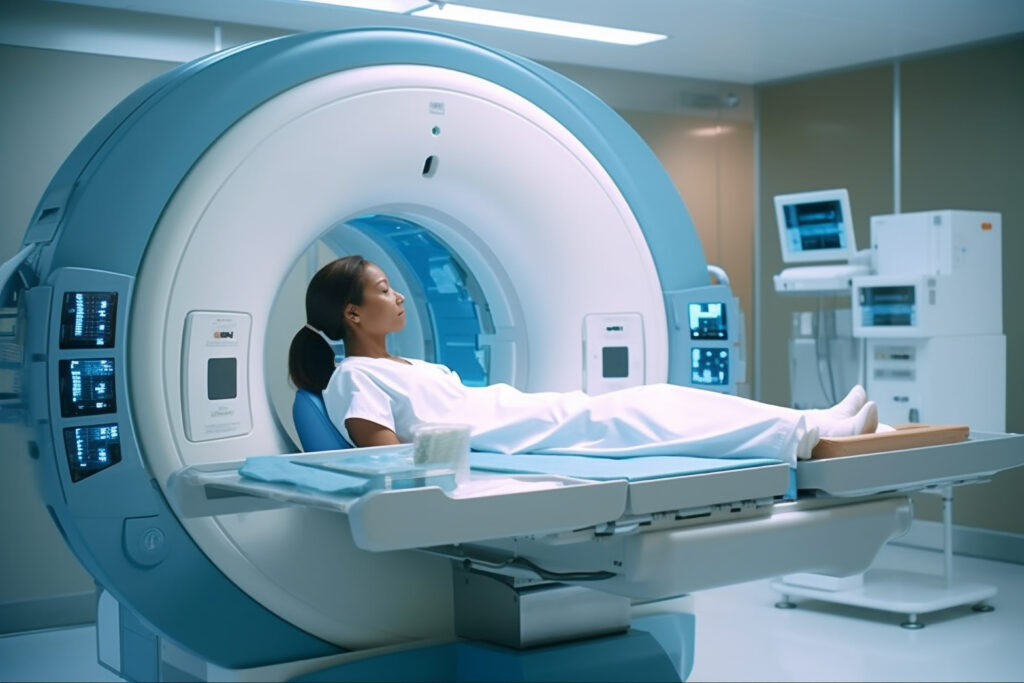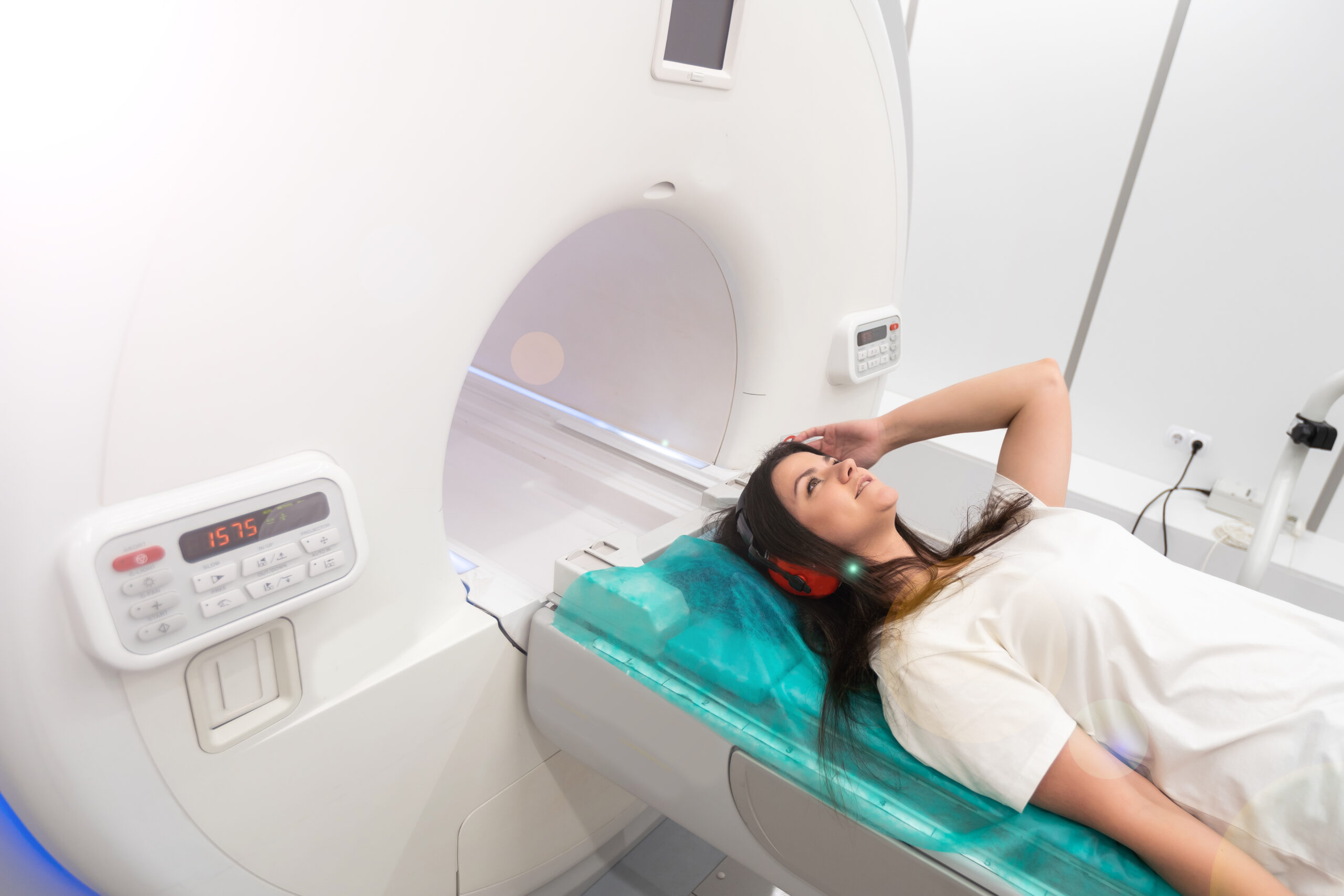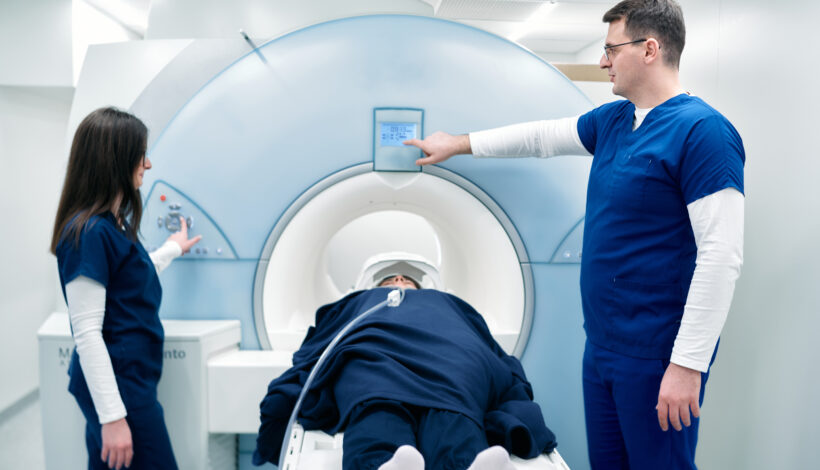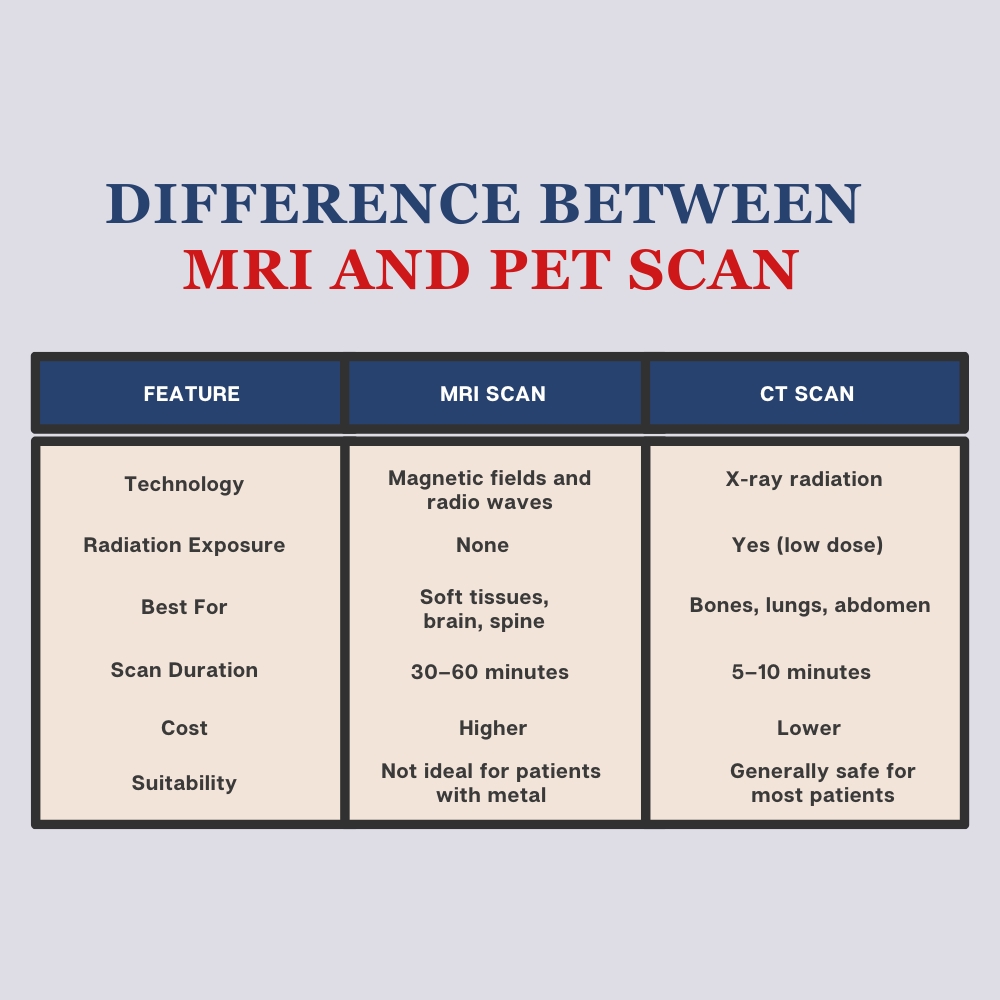Table of Contents
Difference Between CT and MRI Scan
When your doctor suggests a scan to better understand what’s happening inside your body, you’ll likely encounter two major options: CT (Computed Tomography) scans and MRI (Magnetic Resonance Imaging) scans. Both are powerful diagnostic tools used to produce detailed internal images. But they differ significantly in terms of how they work, what they are best suited for, their safety profiles, and cost.
In this comprehensive guide, we’ll explore the difference between CT scan and MRI, including their uses, advantages, limitations, and the affordable scan pricing offered at Ace Imaging Centre. If you’re wondering about CT scan vs MRI for your condition, this guide will help you understand what suits your needs best.
Understanding the Basics
What Is a CT Scan?

A CT scan uses X-rays to capture detailed cross-sectional images of the body. Unlike a regular X-ray, a CT scan rotates around your body to take multiple images from different angles. These images are then processed by a computer to create 3D representations of bones, organs, and tissues.
CT scans are widely used in hospitals and clinics, particularly in emergency settings, because they are fast and efficient.
Key Features of CT Scans:
- Uses ionizing radiation (X-rays)
- Fast (usually 5–10 minutes)
- Good for visualizing bones, chest, lungs, and abdominal structures
- Often used in trauma or emergency care
What Is an MRI Scan?
An MRI scan uses magnetic fields and radiofrequency pulses to produce detailed images of internal organs and tissues. Instead of X-rays, MRI machines use a strong magnet and radio waves that interact with hydrogen atoms in the body to generate images.
MRIs take longer to perform but provide superior contrast when examining soft tissues.
Key Features of MRI Scans:
- No ionizing radiation
- Takes 30–60 minutes
- Provides highly detailed soft tissue images
- Ideal for brain, spinal cord, joints, and muscles
How Do CT and MRI Scans Work?
Understanding the core technology behind these scans helps clarify their ideal applications.
Technology Behind CT Scans
CT scans emit X-rays through the body, capturing multiple slices or cross-sections that are assembled into a 3D image. The X-ray beams are absorbed differently by various tissues (bone, fat, fluid), enabling the scan to highlight abnormalities.
This is especially effective for:
- Fractures
- Internal bleeding
- Tumors
- Lung diseases
- Abdominal injuries
Technology Behind MRI Scans
MRI scans rely on magnetic fields and radio waves to detect the natural energy emitted by hydrogen atoms in the body. When exposed to magnetic fields, these atoms align and produce signals that are captured and converted into images by the MRI machine.
MRIs are preferred when doctors need a more detailed look at:
- Brain and spinal cord
- Joints and ligaments
- Tumors in soft tissue
- Muscles and internal organs
CT Scan vs MRI: Comparative Overview
To make the difference between CT scan and MRI clearer, here’s a side-by-side comparison:
| Aspect | CT Scan | MRI Scan |
| Technology | X-rays | Magnetic fields + radio waves |
| Radiation | Yes (low dose) | No |
| Time Required | 5–10 minutes | 30–60 minutes |
| Best for | Bones, lungs, trauma, internal bleeding | Brain, spine, joints, soft tissues |
| Image Detail | Moderate (excellent for bone & lungs) | High (excellent for tissues & nerves) |
| Cost | Lower | Higher |
| Noise Level | Quiet | Loud (ear protection provided) |
| Safety with Implants | Usually safe | Not suitable for patients with metal implants |
| Contrast Dye | Iodine-based (may cause allergies) | Gadolinium-based (safer, but check kidney health) |
If you’re comparing a CT scan vs MRI, this table offers a helpful reference based on technology, safety, application, and cost.
When to Choose a CT Scan
CT scans are ideal in situations where speed and accuracy are critical, particularly in emergency or trauma care. Doctors prefer CT scans when they need quick answers to:
- Detect internal injuries or bleeding
- Evaluate chest pain or stroke symptoms
- Diagnose complex bone fractures
- Assess cancer spread
- Guide biopsies or surgeries
Advantages of CT Scans:
- Fast and widely available
- Excellent for bone and chest imaging
- Can capture moving structures (e.g., lungs)
Limitations:
- Exposure to radiation
- Less detail in soft tissues compared to MRI
When to Choose an MRI Scan
MRI scans provide excellent detail for soft tissues, nerves, and the brain. They are often used in planned, non-emergency scenarios when physicians need detailed information to diagnose or monitor complex conditions.
Ideal for Diagnosing:
- Brain tumors, strokes, or multiple sclerosis
- Spinal cord injuries and disc herniation
- Ligament tears and sports injuries
- Soft tissue tumors or inflammation
- Pelvic or abdominal organ conditions
Advantages of MRI Scans:
- No radiation exposure
- Highly detailed imaging of soft tissues
- Safe for repeated use
Limitations:
- Longer scan time
- Claustrophobia or discomfort due to noise
- Incompatibility with some implants (e.g., pacemakers)
MRI vs CT Scan Cost in India
One major consideration for patients is cost. While MRI scans are more expensive due to the complex technology and longer time, both scans remain essential tools in medical diagnostics.
Affordable Imaging at Ace Imaging Centre
| Scan Type | Price |
| MRI Scan | ₹3,999 |
| CT Scan (Plain) | ₹1,500 |
| CT Chest (Plain) | ₹2,500 |
| CT Abdomen (Plain) | ₹3,500 (Contrast extra) |
Ace Imaging Centre offers competitive rates without compromising on quality. We use state-of-the-art equipment and have experienced radiologists on staff to ensure reliable, fast results. Whether it’s a CT scan vs MRI decision or a general diagnostic need, you’ll find high-quality services at affordable prices here.
What to Expect During the Scans
During a CT Scan:
- You’ll lie on a table that moves through a donut-shaped scanner.
- The process is painless and quick.
- You may be asked to hold your breath for a few seconds.
During an MRI Scan:
- You’ll lie on a narrow table that slides into a tube-like machine.
- The scan is noisier, and you’ll be given earplugs or headphones.
- You must remain still for the best image quality.
- The experience is painless but may feel long for some.
Safety and Precautions
CT Scan Safety:
- Generally safe for most people.
- Not recommended for pregnant women due to radiation.
- Rare allergic reactions to contrast dye.
MRI Safety:
- No radiation involved.
- Safe for most patients unless they have metal implants, pacemakers, or certain tattoos.
- Gadolinium contrast is usually safe but not recommended for patients with severe kidney disease.
Always inform your doctor and technician about existing health conditions, implants, allergies, or pregnancy before undergoing any imaging procedure.
FAQs
1. Which scan is more detailed—CT or MRI?
MRI is more detailed for soft tissues, nerves, and the brain. CT is better for bones and chest imaging.
2. Is an MRI safer than a CT scan?
Yes. MRI is safer for repeated use as it does not involve radiation. CT scans involve a small dose of radiation.
3. How long does each scan take?
CT scans take 5–10 minutes, while MRI scans usually take 30–60 minutes depending on the body part.
4. Can I get a scan with a metal implant?
CT scans are generally safe with implants. MRI may not be suitable if you have pacemakers, aneurysm clips, or certain metallic implants.
5. Do I need to fast before my scan?
Not always. Fasting is required only for certain contrast-enhanced scans. Your doctor will guide you based on the scan type.
Why Choose Ace Imaging Centre?
At Ace Imaging Centre, we are dedicated to providing accurate diagnostics, patient comfort, and affordable care. Our facility is equipped with the latest MRI and CT scan machines, and our team is committed to fast, precise reporting.
What We Offer:
- Expert radiologists
- Same-day reporting
- Affordable scan packages
- Patient-friendly environment
- Online appointment scheduling
Whether you need a quick CT scan or a detailed MRI scan, our team is here to help you every step of the way.
Conclusion
Understanding the difference between CT scan and MRI empowers you to make informed decisions about your health. Both imaging technologies are essential in modern diagnostics, and the best choice depends on your condition and what your doctor needs to evaluate.
At Ace Imaging Centre, we provide high-quality, affordable diagnostics for all patients. If you’re uncertain about CT scan vs MRI, our experts are ready to assist.
Book your scan today or call us for more information on how we can support your health journey.
![]()



